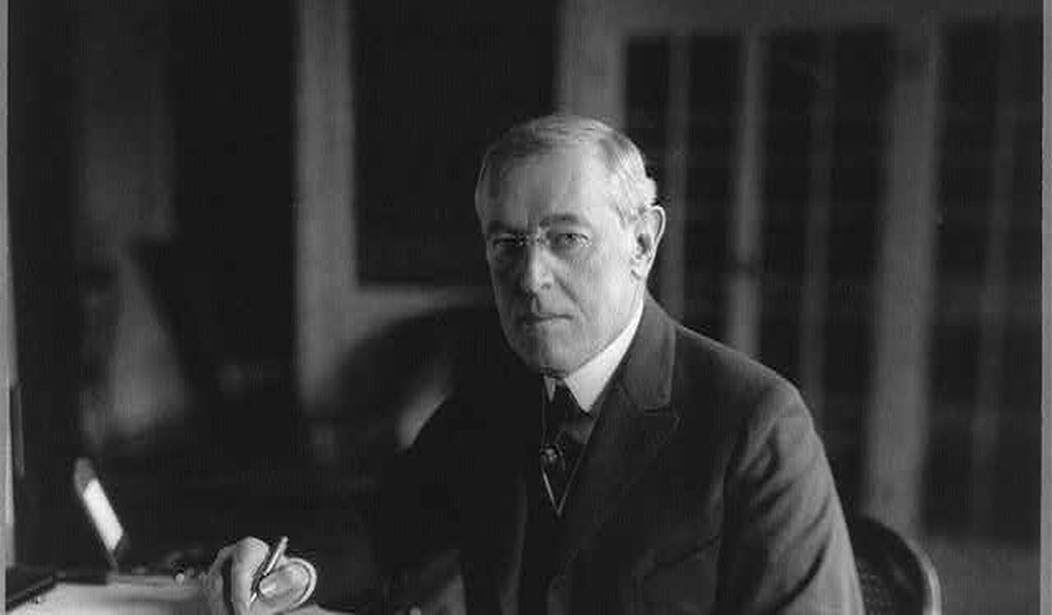Maybe the only thing worse than government corruption is an official, top-down effort to clean it up.
The example that comes first to mind is the Progressive effort at “clean government” over a century ago in this country. Before we get to that, though, let’s look at an example from overseas.
In China, Communist strongman Xi Jinping cemented and centralized his power in no small part via an anti-corruption drive.
Before Xi, Communist premieres — since the death of Mao Zedong, that is — ruled largely by consensus and for a limit of two five-year terms.
The thing about Communist systems is that they’re rife with corruption. Corruption, you might say, is the entire point of Communism. The whole system is a con game. The very few with guns may take whatever they want from those who produce, with the justification that the goods will be redistributed to the masses.
That last part never happens, but the few with the guns also get nice dachas and (usually) a Get-Out-of-Gulag-Free card.
So when Xi began his five-year-long anticorruption campaign in 2012, he wasn’t lacking for legitimate targets or broad public support.
Xi’s efforts did produce some beneficial results for the public at large. According to the CCP’s official data (I know, I know…), 1.34 million officials were brought down on corruption charges. However, some of those were targeted for political reasons: They were rivals or potential rivals of one Xi Jinping.
The range of people targeted by Xi’s anti-corruption campaign is extensive. The list includes army generals, 35 members of the party’s influential Central Committee, nine members of the party’s internal disciplinary body, as well as senior officials, such as a former Chinese president’s chief of staff. Most telling, though, are the two highest-ranking officials prosecuted: Xi’s main political rivals, Bo Xilai and Zhou Yongkang. A powerful party chief known for his charisma and political potential, Bo was taken down when crimes committed by his family members were exposed at a time politically advantageous for Xi.
It’s no coincidence that less than a year after his anti-corruption campaign was over, Xi was able to get the National People’s Congress to remove the term limits on his office. Xi is now Communist China’s Strongman for Life, no consensus from the Central Committee required.
The main beneficiary of Xi’s anti-corruption campaign was Xi, himself — and there’s nothing more corrupt than going after small-fry corruption as a cover for the even greater corruption of one-man rule.
Something similar happened in this country, and we don’t even have any Communists to blame.
Instead, we had — and still have — the Progressives.
ASIDE: “Progressive” is the happy-friendly name attached to the statist movement in this country, one with adherents in both parties, and with ideals antithetical to our founding and Constitution.
Before the Progressive Era got started in earnest during the first decade of the previous century, our federal government could be fairly said to be two things: Small and corrupt.
Maybe the most obvious example of corruption was the so-called spoils or patronage system for federal hiring — although I’m the first to admit that the word “system” is far too strong for the chaos of patronage.
In the olden times, a new president would come in, fire all the old employees, and re-staff federal offices with a motley collection of party hacks, friends, and family members.
Four or eight years later a new president would be sworn in and the chaos would begin anew.
Patronage did have two things going for it, however.
Since the federal government was still small and unobtrusive, there was relatively little damage the president’s halfwit, drooling nephew could do while collecting a government paycheck. Even better, since a new gang of thieves was brought in every few years, there was no chance for a permanent ruling class to form from within the bureaucracy.
This was a problem for Progressives — i.e. American statists — who wanted to increase the size of government.
A lot.
Progressivism, at least in theory, says that a society is best ordered top-down by a ruling class of benevolent experts in government.
But how were experts going to order everyone around for their own good with a tiny little government operating, such as it did, through patronage?
You can probably guess what was a major plank in early Progressives platforms: Cleaning up corruption.
It’s OK if you look at today’s Washington and laugh bitterly at Progressive notions of cleaning up corruption. But you don’t even have to flash-forward to today. Woodrow Wilson was one of America’s first and most “successful” Progressive presidents, who of course promised to clean up Washington.
Instead, he used the ever-increasing power of the federal government to jail his political opponents.
It’s safe to conclude that like Xi’s purported anti-corruption campaign, American progressives used anti-corruption as a fig leaf for their ultimate goal of establishing a permanent bureaucratic army of self-professed experts.
The goal was much like Xi’s, too. But rather than establishing one-man rule, Progressives sought to — and did — establish effective uniparty rule.
We’d have been better off with the petty corruption of patronage, kept small because Washington was small.
Presidents come and go, some even promising to drain the uniparty swamp.
But Washington’s supposedly uncorrupted army of bureaucrats soldiers on, largely untouched and untouchable.
So if you’ll allow me to corrupt the famous phrase: Two cheers for corruption!










Join the conversation as a VIP Member